Reviews
Arthur Marks
USA, 1976
Credits
Review by Daniel Loria
Posted on 23 October 2011
Source MGM DVD
Categories 31 Days of Horror VIII
Shaggy’s 2001 hit single, “It Wasn’t Me,” taught me that I could get away with cheating on girls the same way I did with cheating on algebra tests: by denying everything, no matter how obvious. Logic and common sense, however, would soon prove that this only works for gentlemen like Shaggy and Silvio Berlusconi. It was a massive let-down. But that’s not the case in possession-movies - the ones where an evil spirit takes control of an innocent soul - and it’s certainly not the case in J.D.’s Revenge, a delirious fever dream of a movie that gives its mild-mannered protagonist carte blanche to get as rowdy and randy as he wants with whoever he wants because, well, it isn’t him.
Blaxploitation provided African-American actors the chance to play principal roles otherwise unattainable to them in feature films. Granted, those opportunities came through a de facto segregation that would deem African-Americans “acceptable” to portray leads in films for a pre-established target audience, but during the 1970’s there was little alternative. The result produced some brilliant performances in a number films made on the fly for a fast buck. Perhaps the greatest example of this is William Marshall’s disarmingly earnest performance in Blacula, where the Shakespearian-trained actor does his job without caring if audiences are going to take the film seriously or not. It’s one of the great contradictions of Blaxploitation: it gave African-American actors rich roles in generally poor movies. J.D.’s Revenge is one of those movies, a film so ridiculous that it’d be impossible to take seriously if everyone involved wasn’t trying so hard to make it work. I can’t really say they succeeded - the film barely goes five minutes before it resorts to nudity - but I will certainly vouch for J.D.’s Revenge as one of the more entertaining and criminally overlooked Blaxploitation films.
The heavy-handed prologue finds J.D. Walker, a no-nonesense, razor-blade-wielding gangster in 1942 New Orleans, as he sees his sister, Betty Joe, brutally murdered in a slaughterhouse. Betty Joe’s lover, Elijah Bliss, happens to be J.D.’s arch nemesis. Eljah orders J.D. to get killed on the spot after finding him standing over Betty Joe’s dead body, wrongly assuming J.D. is guilty of the murder. The only thing this accomplishes is ensuring that J.D. becomes one pissed off spirit with a score to settle from beyond the grave.
Fast-forward to 1976: Ike Washington is a young law-student putting himself through school by driving a cab. The opportunities for social mobility afforded to African-Americans are vastly different in 1976 America, but the class element hasn’t changed. The intellectual, soft-spoken Ike has just as much to prove as J.D. did a generation before—but the image he must project is the exact opposite. Studious, hard-working, non-threatening, it’s as if Ike was a nicer suit and fancy accent away from the constructed, prerequisite Poitier-measure of social acceptance. His whole life is turned upside down after he is hypnotized at a cheap cabaret. Evidently, that’s all it takes for J.D. Walker to take control of Ike’s body.
As J.D., Ike drinks, gambles, curses and hits women. Possesed-Ike’s reaction after his girlfriend makes fun of his new haircut? Attempted rape. This movie fluctuates between hilarious moments and awkward sexual violence. “I don’t remember any of those things,” he apologizes after beating her up. The line is meant to sound incredulous, but Ike’s delivery gives it a fiendishly apathetic edge. It begs the question, who exactly is channeling whom?
There is a key difference between why I suffer so much through nightmares but enjoy horror films so thoroughly—and why I find possession narratives so entertaining. Blame it on my Catholic upbringing, but I always feel accountable for my thoughts whenever I dream of doing terrible things. When I see characters do terrible things on-screen, I might feel more or less accountable for them depending how much I identify with them. But when a spirit-possessed character goes around wreaking havoc, it creates a massive gulf of accountability; no one is responsible, there’s no need to feel bad at all! It’s the equivalent of lucid dreaming: all bets are off, let’s see what type of sick shit we can get away with. J.D.’s Revenge is precisely that type of movie.
The film’s frantic tone helps one get into the spirit of this madness. We can’t help but think that Ike is boring until he starts dressing, talking and strutting around like a 40’s gangster. He associates sex with images of murder, raw meat and bright-red blood. He almost kills a guy with a razor blade. He beats and robs one of his passengers, an old lady, after driving recklessly in an abandoned lot.
The vicarious thrills of J.D.’s Revenge are shared by the audience and protagonist alike. As soon as J.D. gets his revenge and leaves Ike’s body, both his friends and the authorities are more than willing to blame the whole thing on ghosts. The sexual assault? The attempted murders? It wasn’t him. It was a ghost. All the characters in this movie seem to be perfectly happy with this explanation. The film ends in a tableau with Ike and all his friends joking around outside the Homicide Detective’s office, laughing in unison. Remember that time you did all those horrible, terrible things? We don’t either.
More 31 Days of Horror VIII
-

Westworld
1973 -

Child’s Play
1988 -
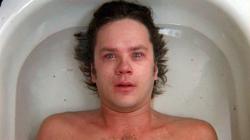
Jacob’s Ladder
1990 -

Willy Wonka and the Chocolate Factory
1971 -
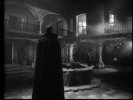
El Vampiro
1957 -
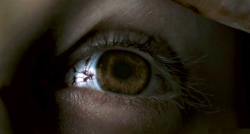
28 Weeks Later
2007 -

Piranha II: The Spawning
1981 -
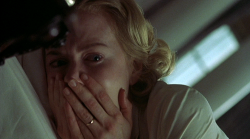
The Others
2001 -

Quatermass and the Pit
1967 -

I Know Who Killed Me
2007 -

Bride of Re-Animator
1990 -

Alucarda
1978 -
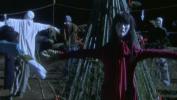
Kakashi
2001 -

Seizure
1974 -
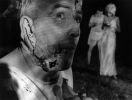
Night of the Living Dead
1968 -

Night of the Living Dead
1990 -
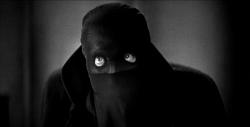
The Bat Whispers
1930 -

Miracle Mile
1988 -

Tintorera
1977 -

Paradise Lost
1996 -

The Cars that Ate Paris
1974 -

Ginger Snaps
2000 -
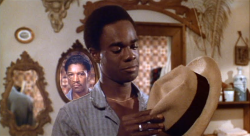
J.D.’s Revenge
1976 -
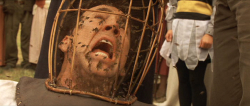
The Wicker Man
2006 -

Black Water
2007 -

Don’t Panic
1988 -
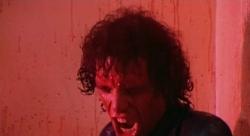
The Driller Killer
1979 -

Targets
1968 -

Mahal
1949 -
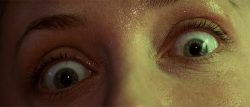
Event Horizon
1997
We don’t do comments anymore, but you may contact us here or find us on Twitter or Facebook.



